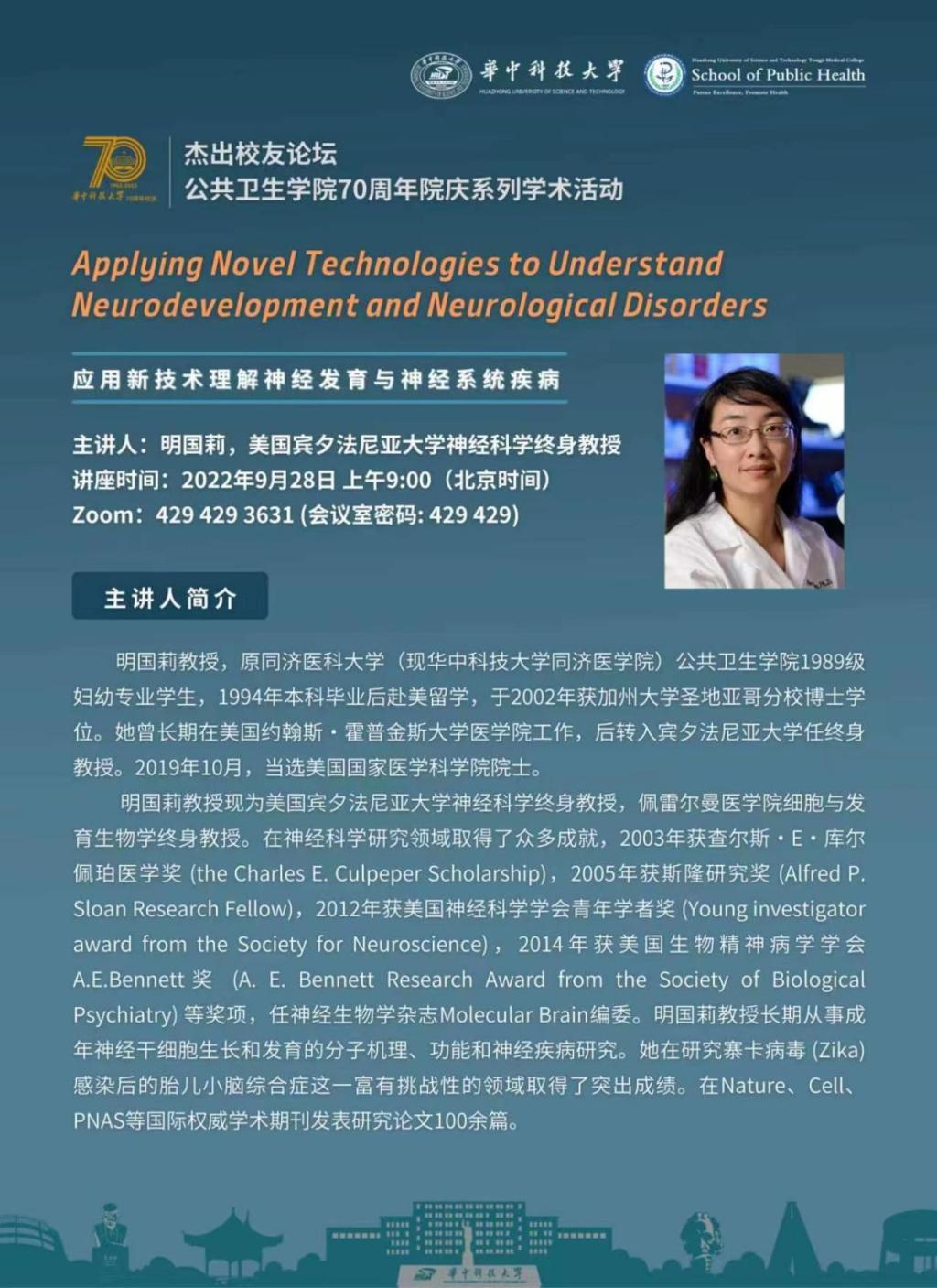Speaker : Ming Guoli, Academician of National Academy of Medical Sciences, Professor of Neuroscience, University of Pennsylvania, USA
Time : 9 : 00 am on September 28, Beijing time ( 9 : 00 pm ET )
Language : English
Live Link:https://wx.vzan.com/live/tvchat-1453766601?shauid=S3LAuaARAG6VYumDgcrgXw**
Live Link Code :

Lecture topic:Applying novel technologies to understand neurodevelopment and neurological disorder

Introduction of the speaker :Prof. Ming Guoli, formerly Tongji Medical University ( now Tongji Medical College, Huazhong University of Science and Technology ), was a 1989-year undergraduate student majoring in maternal and child health. After graduating in 1994, she studied in the United States and received a doctorate from the University of California, San Diego in 2002. She worked in the medical school of Johns Hopkins University for a long time and then transferred to the University of Pennsylvania as a tenured professor.
As Perelman professor of neuroscience at the Perelman School of Medicine at the University of Pennsylvania, Guo-li Ming heads a laboratory that is currently creating and using organoids to model disease and treatments in the brain-specifically for Zika and microcephaly and other neurological disorders. Initially receiving medical training in China in the 1990s, Guo-li became more interested in research after moving to the US. After studying neuron communication at UC San Diego, she became an assistant professor at Johns Hopkins to study neural development processes during both embryonic development and in the adult brain. Guo-li is a frequent collaborator with her husband, Hongjun, who studies neural stem cells and neurogenesis. She has received several awards and is a member of the Society for Neuroscience and the American College of Neuropsychopharmacology.
Research in Dr. Guo-li Ming's laboratory centers on understanding molecular mechanisms underlying neurodevelopment and how its dysregulation may contribute to developmental neurological disorders. The lab uses a combination of experimental approaches that include molecular biology, biochemistry, mouse genetics, imaging, electrophysiology, electron microscopy, optogenetic manipulations, next-generation sequencing, and behavioral tests to study neural development. We have been using two complementary model systems, the genetically modified mouse system, and patient-derived induced pluripotent stem cell (iPSC) model systems. We are interested in addressing a broad range of topics, from neuronal migration, axon and dendritic development, synapse formation, and circuitry integration to the plasticity of developing neurons, and functional regeneration of mature neurons.
She has published more than 100 research papers in international authoritative academic journals such as Nature, Cell, Cell Stem Cell, and Nature Medicine. In October 2019, it changed our understanding of potential disease mechanisms and potential therapeutic strategies by “ pioneering the use of patient-derived induced pluripotent stem cells to simulate the genetic and environmental risks of brain diseases ”. Elected to the National Academy of Medical Sciences.


